Introduction
Macular degeneration, often referred to as age-related macular degeneration (AMD), is a progressive eye condition that affects the macula, a small but crucial part of the retina responsible for central vision. This condition is a leading cause of vision loss in individuals over the age of 50. In this article, we will explore what macular degeneration is, its symptoms, causes, how it is diagnosed, the importance of blood tests, the best treatment options available, and ways to counteract its effects.
Understanding Macular Degeneration
1. The Basics
Defining Macular Degeneration
Macular degeneration, often referred to as age-related macular degeneration (AMD), is a prevalent eye condition that affects millions of people worldwide, especially those aged 50 and above. This disease primarily impacts the macula, a tiny but vital part of the retina responsible for central vision. To truly understand macular degeneration, it’s essential to delve into its definition and the role of the macula.
The macula is a specialized region located at the center of the retina, which plays a pivotal role in our visual perception. It provides us with the ability to appreciate art, read, drive, and recognize faces. Essentially, the macula allows us to focus on the fine details of the world around us. When it functions correctly, our central vision is sharp, enabling us to perform everyday tasks with ease. However, when the macula becomes compromised, it can lead to the onset of macular degeneration.

Macular degeneration is, at its core, a progressive and chronic eye condition. It manifests as a gradual deterioration of the macula, which results in the loss of central vision. This gradual loss can make even the simplest of tasks, such as reading a book or identifying a familiar face, incredibly challenging. Imagine a world where the center of your visual field becomes increasingly blurry, making it difficult to focus on anything directly in front of you. This is the reality for those suffering from macular degeneration.
The degeneration of the macula occurs due to the accumulation of drusen, which are yellow deposits that gather beneath the retina. Drusen deposits impair the macula’s ability to function properly, leading to central vision loss over time. This type of macular degeneration is known as “dry” AMD, and it is the most common form, accounting for approximately 90% of all cases. Despite being the more common type, it’s not as aggressive as its counterpart, “wet” AMD.
In wet AMD, the situation is more severe and rapid. Instead of drusen, wet AMD is characterized by the growth of abnormal blood vessels beneath the retina. These blood vessels can leak blood and fluids, causing severe damage to the macula and resulting in rapid and severe central vision loss. This form of macular degeneration is less common but requires more urgent and intensive treatment.
In essence, macular degeneration is defined by the deterioration of the macula, which leads to central vision loss. It comes in two main forms: dry and wet AMD. Dry AMD involves the accumulation of drusen, while wet AMD is marked by the growth of abnormal blood vessels. Understanding the difference between these two forms and recognizing the significance of the macula’s role in our visual perception is crucial for comprehending the impact of macular degeneration on those who suffer from it.
In the following sections of this article, we will explore the symptoms of macular degeneration, its causes, the diagnostic process, the importance of blood tests, available treatment options, and strategies for counteracting the condition. By the end of this comprehensive exploration, you’ll have a holistic understanding of macular degeneration and how to address its various aspects effectively.

Importance of the Macula
The macula, a tiny yet extraordinarily significant part of the human eye, plays a pivotal role in our visual perception and daily life. This small area, which is only about 5.5 millimeters in diameter, is located at the center of the retina and is responsible for our central vision. In this article, we will delve into the importance of the macula and how it affects our ability to see the world around us.
The macula is often referred to as the “macula lutea,” which means “yellow spot” in Latin. This name is derived from the yellow pigments present in this region, which serve a critical function. The yellow pigments act as a natural filter, absorbing excess blue and ultraviolet light, and protecting the underlying photoreceptor cells from potential damage. This filtering process not only safeguards the macula itself but also our overall eye health.
One of the most remarkable aspects of the macula is its capacity to provide us with sharp, detailed, and colorful vision. When we look at something directly, such as reading a book, recognizing a face, or admiring a work of art, it is the macula that is primarily responsible for this level of visual acuity. This ability to focus on fine details is what allows us to perform a multitude of tasks that define our daily experiences.
The importance of the macula becomes even more evident when we consider its role in reading and driving. Reading, for instance, requires not only the ability to see letters but also to distinguish between them, recognize words, and comprehend sentences. Without a healthy macula, reading becomes a cumbersome task, as the central vision becomes increasingly blurry, making it challenging to focus on the text.
Similarly, driving relies heavily on the central vision provided by the macula. When we drive, we need to see road signs, traffic lights, and the movements of other vehicles with utmost precision. A compromised macula can significantly impair our ability to make split-second decisions on the road, posing a risk to both ourselves and others.
Moreover, the macula is instrumental in recognizing faces. When we interact with people, their facial expressions and features play a crucial role in our communication. A healthy macula enables us to perceive facial expressions, read emotions, and maintain eye contact, which are all integral aspects of social interaction.
The importance of the macula is perhaps most evident when we consider the impact of macular degeneration, a condition that affects this critical region. Age-related macular degeneration (AMD) is a prevalent eye disease, primarily affecting individuals over the age of 50. In AMD, the cells in the macula begin to deteriorate, leading to a loss of central vision.
As the macula degenerates, it creates difficulties in reading, recognizing faces, and performing tasks that require detailed vision. AMD is one of the leading causes of vision loss in older adults and underscores the vital role that the macula plays in our lives.
The macula, though small in size, holds enormous significance in our lives. It is the linchpin of our central vision, enabling us to see the world in intricate detail. From reading and driving to recognizing faces and appreciating art, the macula is indispensable. Its protection and maintenance are essential to preserving our overall eye health and our ability to experience the world in all its vibrant detail. Understanding the importance of the macula emphasizes the need for regular eye care and the prevention of conditions like macular degeneration to maintain the quality of our vision.

2. Types of Macular Degeneration
Macular degeneration can be classified into two main types:
Dry Macular Degeneration
Dry macular degeneration is the most common form of the disease, accounting for approximately 90% of cases. It is characterized by the presence of drusen, which are yellow deposits that accumulate under the retina. These deposits can impair the macula’s function over time, leading to central vision loss.
Wet Macular Degeneration
Wet macular degeneration is rarer yet exhibits higher aggressiveness. It is caused by the growth of abnormal blood vessels beneath the retina, which can leak blood and fluids. This leakage damages the macula and can result in rapid and severe central vision loss.
Symptoms of Macular Degeneration
1. Early Warning Signs
Macular degeneration is a progressive eye condition that can lead to severe vision impairment if left unchecked. Recognizing the early warning signs of macular degeneration is crucial for timely diagnosis and treatment. In this article, we will delve into the various signs and symptoms that may indicate the presence of macular degeneration.
Macular degeneration typically manifests in two main forms: dry macular degeneration and wet macular degeneration. Regardless of the type, early detection is key to preventing further vision loss. Keep an eye out for these initial indicators:
Blurred Vision
One of the most common early symptoms of macular degeneration is blurred vision. This can often be the first sign that something is amiss with your eyes. The blurriness usually affects your central vision, making it challenging to see fine details clearly. If you find yourself struggling to focus on objects, read small print, or recognize faces, it’s essential to consult an eye specialist.
Distorted Vision
In addition to blurred vision, individuals with macular degeneration might experience distorted vision. This means that straight lines can appear wavy or bent. For instance, when looking at a grid or a checkerboard pattern, the lines may seem irregular, making it difficult to perceive objects accurately.
Difficulty Reading
Reading is an activity we rely on for many aspects of daily life, and macular degeneration can significantly affect this skill. If you notice that words on a page appear blurry or missing, or if you require significantly brighter lighting to read comfortably, it’s time to get your eyes examined. Difficulty reading can be an early indication of macular degeneration.
Advanced Symptoms
As macular degeneration progresses, the early warning signs can become more pronounced. It’s crucial to be vigilant about these symptoms and seek prompt medical attention:
Blind Spots
Advanced macular degeneration can result in the development of blind spots or scotomas in your central field of vision. These blind spots can be more noticeable when you’re trying to focus on a specific point, making activities like driving and reading increasingly challenging.
Loss of Color Vision
Macular degeneration can also lead to a reduction in color perception. Tones might show up less dynamic or cleaned out. For example, you might notice that the reds and greens you see are not as vivid as they used to be. This loss of color vision can have a significant impact on your overall visual experience.
Vision Distortion
In some cases, vision distortion becomes severe, making it nearly impossible to engage in tasks that require precise eyesight. Objects can appear severely distorted or misshapen, making it challenging to recognize familiar faces or navigate your surroundings.
Understanding these advanced symptoms is vital because they can signal the need for urgent medical intervention. While there is no cure for macular degeneration, early treatment and management can help slow down the progression of the disease and preserve as much vision as possible.
Macular degeneration is a sight-threatening condition that affects a significant portion of the population, especially individuals over the age of 50. Recognizing the early warning signs, such as blurred vision, distorted vision, and difficulty reading, can make a world of difference in managing the condition effectively. If you or a loved one experiences any of these symptoms, it’s essential to consult an eye care specialist promptly for a comprehensive eye exam. Remember, early detection is the key to preserving your precious eyesight and maintaining your quality of life.

2. Advanced Symptoms
As macular degeneration progresses, it can lead to a range of advanced symptoms that significantly impact an individual’s quality of life. While early symptoms like blurred vision and difficulty reading are challenging enough, the advanced stages of this condition bring even greater challenges. In this section, we will explore the advanced symptoms of macular degeneration and their effects on those who suffer from them.
Blind Spots:
One of the most troubling advanced symptoms of macular degeneration is the development of blind spots in the central field of vision. These blind spots, also known as scotomas, can make routine activities incredibly difficult. Imagine trying to recognize faces or read a book with portions of the text missing or distorted. Blind spots create an obstacle course in a person’s visual perception, and navigating daily life can become a true challenge.
Loss of Color Vision:
Macular degeneration can also lead to a loss of color vision, making the world appear dull and less vibrant. Colors that were once vivid now seem washed out and muted. This can be emotionally distressing, as the world loses some of its beauty and vitality. Simple pleasures like admiring a sunset or enjoying a colorful painting can lose their luster, which can lead to feelings of frustration and sadness.
Vision Distortion:
In the advanced stages of macular degeneration, vision distortion can become severe. Straight lines may appear bent or wavy, making it nearly impossible to carry out tasks that require precise eyesight. Reading, watching TV, or even simply recognizing the faces of loved ones can become incredibly challenging. Vision distortion is not only frustrating but also affects an individual’s sense of independence and self-reliance.
Living with these advanced symptoms can be emotionally and mentally taxing. It is important for individuals with macular degeneration to seek support and assistance from eye care professionals, low vision specialists, and support groups. Techniques and aids are available to help those with advanced macular degeneration adapt to their changing vision. These may include low vision aids like magnifying glasses, specialized computer software, and strategies for daily living that can enhance their quality of life.
In addition to professional support, family and friends play a crucial role in helping individuals with advanced macular degeneration maintain their independence and emotional well-being. Understanding and empathy are key when dealing with a loved one experiencing the advanced symptoms of macular degeneration. This support network can provide both practical assistance and emotional comfort during the challenging journey of living with advanced macular degeneration.
Advanced symptoms of macular degeneration bring a new set of challenges that individuals must face with resilience and determination. Blind spots, loss of color vision, and vision distortion can significantly impact daily life and emotional well-being. Seeking professional help and leaning on a supportive network of friends and family can make a world of difference in navigating these advanced symptoms and enhancing one’s quality of life. It is essential for those with macular degeneration to stay informed, proactive, and optimistic in the face of these challenges.

Causes of Macular Degeneration
Macular degeneration is a prevalent eye condition that affects a significant portion of the global population, particularly among individuals over the age of 50. It’s essential to delve into the causes of macular degeneration to understand how this eye disease develops and what factors contribute to its onset. In this article, we will explore the primary causes of macular degeneration.
The Role of Aging
Aging is one of the most significant factors contributing to macular degeneration. In fact, age-related macular degeneration (AMD) is a term often used to describe this condition. As we grow older, changes occur in the macula, the central portion of the retina responsible for sharp, detailed vision. Over time, these age-related changes can lead to the development of drusen, which are yellow deposits that accumulate beneath the retina. These deposits can impair the function of the macula, causing central vision to become blurry and making it difficult to see fine details. While aging is a natural process, understanding its role in macular degeneration is crucial, especially for those in older age groups.
Genetic Predisposition
Genetics also play a substantial role in macular degeneration. If you have a family history of this condition, your risk of developing it increases. Specific gene variations have been identified as risk factors for macular degeneration. The genetic component of the disease is especially relevant in cases of early-onset macular degeneration, where individuals may have a genetic predisposition that contributes to the condition. While genetics alone do not guarantee the development of macular degeneration, they certainly influence its likelihood. If you have a family history of the disease, it’s important to be vigilant and consider regular eye check-ups to detect any signs of its onset.
Smoking and Macular Degeneration
Among the modifiable risk factors, smoking stands out as a prominent contributor to macular degeneration. Numerous studies have established a strong link between smoking and an increased risk of developing AMD. Smoking exposes the body to harmful chemicals and toxins, including those that can damage the blood vessels in the eyes. These damaged blood vessels can lead to the growth of abnormal blood vessels beneath the retina, a hallmark of wet macular degeneration. Additionally, smoking can exacerbate the condition in those already diagnosed, causing faster progression and more severe vision loss. Therefore, if you are a smoker, quitting can significantly reduce your risk of macular degeneration or help slow its progression if you’ve already been diagnosed.
Sunlight Exposure
Prolonged exposure to ultraviolet (UV) light, particularly sunlight, is another environmental factor that can contribute to macular degeneration. The eyes are sensitive to UV light, and excessive exposure can lead to damage over time. To protect your eyes from harmful UV rays, it’s crucial to wear sunglasses that block both UVA and UVB rays. It’s especially important for those in high-sunlight environments or individuals who spend a lot of time outdoors. The use of wide-brimmed hats and protective eyewear can further reduce the risk associated with UV light exposure. Taking these precautions can make a significant difference in preserving eye health.
Understanding the causes of macular degeneration is a critical step in its prevention and management. Age, genetics, smoking, and sunlight exposure are key factors that influence the development and progression of this vision-threatening condition. While some factors, like aging and genetics, cannot be controlled, lifestyle choices such as quitting smoking and protecting your eyes from UV light can significantly reduce your risk. By being proactive and taking steps to minimize these risk factors, individuals can help preserve their vision and reduce the impact of macular degeneration. Regular eye exams and consultation with eye care specialists are also essential in detecting and managing the condition effectively.

Diagnosis and the Role of Blood Tests
Diagnosing macular degeneration is a critical step in managing this sight-threatening condition. Regular eye exams are the primary means of identifying the disease, and blood tests can play a pivotal role in assessing the risk and severity of macular degeneration.
Macular degeneration is a progressive eye condition that primarily affects the macula, a crucial part of the retina responsible for central vision. While its symptoms, such as blurred vision and blind spots, are often noticeable, early diagnosis is essential for timely intervention. This is where blood tests can provide valuable insights.
The Importance of Timely Diagnosis
Macular degeneration is a stealthy adversary. It can quietly progress, leading to significant vision loss before an individual even realizes they have the condition. This is why regular eye exams are vital, especially for those over the age of 50 or with a family history of macular degeneration.
During an eye exam, your ophthalmologist will use various diagnostic tools to assess the health of your macula. One of the common tests is the Amsler grid, which helps detect distortions in your central vision. However, this is just the beginning.
Blood Tests for Macular Degeneration
Genetic Testing
One of the most innovative and informative blood tests for macular degeneration is genetic testing. Macular degeneration often has a genetic component, and specific gene variations can increase the risk of developing the condition. These tests can identify these variations and provide crucial information about an individual’s risk profile.
Individuals with a family history of macular degeneration are often encouraged to undergo genetic testing. By identifying these genetic factors, patients and their healthcare providers can create a tailored approach to managing their eye health. Additionally, it can aid in counseling family members who may also be at risk.
Biomarker Tests
Another category of blood tests focuses on biomarkers. These are specific molecules in the blood that can indicate the presence and severity of macular degeneration. Biomarker tests can provide an in-depth look at the condition’s progression.
One example of a biomarker test for macular degeneration is the measurement of vascular endothelial growth factor (VEGF) levels. In wet macular degeneration, abnormal blood vessels grow beneath the retina and leak, causing vision damage. By measuring VEGF levels, healthcare providers can assess the activity of these abnormal blood vessels. This information is critical in determining the best treatment strategy.
Apart from VEGF, other biomarkers like C-reactive protein and complement factor H can provide further insights into the condition’s status. These tests help in monitoring the disease and tailoring treatment plans to the patient’s unique needs.
Why Blood Tests Matter
Blood tests in macular degeneration offer a more comprehensive understanding of the condition. They go beyond the surface symptoms and provide crucial information about the underlying causes and risk factors. This information can guide treatment decisions, enabling healthcare providers to develop a personalized plan for each patient.
Moreover, these tests are not limited to diagnosis alone. They play a significant role in assessing the effectiveness of treatments, especially in wet macular degeneration cases. By regularly monitoring biomarker levels, healthcare providers can make timely adjustments to the treatment plan to ensure the best possible outcomes.

Best Treatment Options
1. Managing Dry Macular Degeneration
Dry macular degeneration, often referred to as age-related macular degeneration (AMD), is a prevalent eye condition that primarily affects older adults. While there is currently no cure for dry macular degeneration, lifestyle changes and nutritional supplements can play a significant role in managing the condition and slowing its progression. In this section, we will explore the importance of lifestyle changes and the role of nutritional supplements in dealing with dry macular degeneration.
Lifestyle Changes for Dry Macular Degeneration:
One of the most crucial aspects of managing dry macular degeneration is adopting a healthy lifestyle, which includes dietary modifications and behavioral changes. Let’s dive into some lifestyle changes that can make a substantial difference for individuals dealing with this condition.
I. A Balanced Diet for Eye Health:
A diet rich in eye-healthy nutrients can provide essential support for individuals with dry macular degeneration. Here are several essential elements of such a diet:
a. Antioxidant-Rich Foods: Antioxidants are powerful compounds that help protect the eyes from oxidative damage. Vitamins C and E, as well as beta-carotene (a precursor of vitamin A), are essential for eye health. You can find these nutrients in foods such as citrus fruits, leafy greens, carrots, and sweet potatoes.
b. Omega-3 Fatty Acids: Omega-3 fatty acids, found in fatty fish like salmon and mackerel, as well as in flaxseeds and walnuts, are associated with a reduced risk of macular degeneration. These healthy fats support retinal function and overall eye health.
c. Zinc: Zinc is a vital mineral for eye health. It can be found in lean meats, poultry, whole grains, and nuts. Zinc is often included in eye supplements designed for macular degeneration management.
d. Lutein and Zeaxanthin: These two carotenoids are naturally present in the macula and play a role in protecting the eyes from harmful light and oxidative damage. Foods like leafy greens, corn, and eggs are excellent sources of lutein and zeaxanthin.
II. Regular Exercise:
Maintaining an active lifestyle and incorporating regular exercise can be highly beneficial for individuals with dry macular degeneration. Exercise not only promotes overall health but can also help manage conditions like obesity and high blood pressure, which are associated with macular degeneration.
III. Smoking Cessation:
One of the most critical lifestyle changes for individuals with dry macular degeneration is quitting smoking. Smoking has been strongly linked to an increased risk of macular degeneration and can exacerbate its progression. Quitting smoking can significantly slow down the degenerative process and protect remaining vision.
IV. UV Protection:
Protecting the eyes from harmful ultraviolet (UV) light is another essential lifestyle change for individuals with dry macular degeneration. Prolonged exposure to UV rays, particularly from the sun, can contribute to the development and progression of macular degeneration. Wearing sunglasses that offer UV protection and a wide-brimmed hat when outdoors can help shield the eyes from harmful UV radiation.
Nutritional Supplements for Dry Macular Degeneration:
In addition to making dietary changes, nutritional supplements can be a valuable component of managing dry macular degeneration. While it’s essential to consult with an eye care specialist before adding supplements to your regimen, certain supplements have shown promise in supporting eye health.
I. Vitamins and Minerals:
Supplements that contain a combination of vitamins and minerals, such as vitamins C and E, zinc, and copper, are often recommended for individuals with macular degeneration. These supplements aim to provide the necessary nutrients for the macula and slow down the progression of the condition.
II. Omega-3 Supplements:
Omega-3 fatty acid supplements, particularly those derived from fish oil, are known for their potential to reduce the risk of macular degeneration progression. These supplements provide a concentrated source of the essential fats required for eye health.
III. Lutein and Zeaxanthin Supplements:
For those who have difficulty obtaining sufficient lutein and zeaxanthin from their diet, supplements containing these carotenoids can be considered. These supplements can help maintain optimal levels of these compounds in the macula.
Lifestyle changes and nutritional supplements are vital components of managing dry macular degeneration. While they may not provide a cure, they can significantly slow down the progression of the condition and improve overall quality of life. It’s crucial to consult with an eye care specialist for personalized guidance on which supplements are suitable for your needs. By adopting a healthy diet, engaging in regular exercise, quitting smoking, and protecting your eyes from UV light, you can take proactive steps to manage dry macular degeneration and preserve your remaining vision.

2. Treating Wet Macular Degeneration
In the realm of macular degeneration treatment, especially in the case of wet macular degeneration, medical advancements have provided some hope for patients. Wet macular degeneration is a more aggressive form of this condition, characterized by the growth of abnormal blood vessels beneath the retina. In this section, we’ll explore two crucial treatment methods for wet macular degeneration: Anti-VEGF injections and laser therapy.
- Anti-VEGF Injections:One of the most revolutionary breakthroughs in the treatment of wet macular degeneration is the use of Anti-VEGF (Vascular Endothelial Growth Factor) injections. These injections have become a cornerstone of treatment and have significantly improved the prognosis for many patients.When abnormal blood vessels grow beneath the retina, they can leak fluid and blood, causing damage to the macula and, in turn, rapid and severe vision loss. Anti-VEGF injections work by inhibiting the action of VEGF, a protein that promotes the growth of these abnormal blood vessels. By blocking VEGF, these injections help reduce the development of new vessels and control the leakage of fluid.One of the key advantages of Anti-VEGF injections is that they can slow the progression of wet macular degeneration, preventing further vision loss. Additionally, they can even lead to vision improvement in some cases. However, it’s essential to understand that these injections are not a one-time solution. They require regular treatment and monitoring by an ophthalmologist.The frequency of Anti-VEGF injections varies from person to person and is determined by the severity of the condition and the patient’s response to treatment. Typically, patients may receive injections every 4-8 weeks.It’s important to note that while Anti-VEGF injections can be highly effective, they may not completely restore lost vision. Their primary goal is to halt the progression of the disease and maintain or improve the existing vision. Patients should work closely with their eye care specialist to determine the most suitable treatment plan and frequency of injections.
- Laser Therapy:Laser therapy, while less common than Anti-VEGF injections, remains a valuable tool in the treatment of wet macular degeneration, particularly in specific cases.This treatment method involves using a high-energy laser beam to target and seal the abnormal blood vessels that are causing the leakage of fluid beneath the retina. By sealing these vessels, laser therapy aims to reduce further damage to the macula.Laser therapy is often considered when the abnormal blood vessels are located in a more peripheral region of the retina, away from the central vision area. In such cases, laser treatment can be a viable option to prevent the progression of wet macular degeneration.However, it’s important to note that laser therapy is not without its limitations. Unlike Anti-VEGF injections, laser therapy cannot restore lost vision. The primary goal of laser treatment is to preserve the remaining vision and prevent further deterioration.Additionally, laser therapy may not be suitable for all patients, as its effectiveness depends on the specific characteristics of the abnormal blood vessels and their location. This treatment is typically reserved for specific cases and should be discussed with an eye care specialist to determine its appropriateness.
- While there is no cure for wet macular degeneration, significant progress has been made in the development of effective treatment options. Anti-VEGF injections and laser therapy have provided hope and improved outcomes for many patients. The key to successful treatment lies in early diagnosis, regular monitoring, and collaboration with an experienced eye care specialist to determine the most suitable approach. By leveraging these treatment methods, individuals with wet macular degeneration can slow the progression of the condition, reduce vision loss, and maintain a better quality of life.
Counteracting Macular Degeneration
1. Lifestyle Modifications
Lifestyle modifications play a crucial role in managing macular degeneration, a progressive eye condition that affects central vision. In this section, we’ll focus on two essential aspects of lifestyle modifications: diet and nutrition, as well as smoking cessation.
Diet and Nutrition:
Maintaining a well-balanced and nutritious diet is one of the key lifestyle modifications that can significantly impact the progression of macular degeneration. Certain nutrients and foods are particularly beneficial for eye health and can help slow down the deterioration of the macula.
- Antioxidant-Rich Foods: Antioxidants are essential in protecting the eyes from oxidative stress, a factor that can exacerbate macular degeneration. Foods rich in antioxidants, such as fruits and vegetables, should be a fundamental part of your diet. Citrus fruits, spinach, and sweet potatoes are excellent choices as they contain vitamins C and E, which are known for their antioxidant properties.
- Omega-3 Fatty Acids: Omega-3 fatty acids are known for their anti-inflammatory properties and their potential to reduce the risk of macular degeneration. These sound fats can be found in greasy fish like salmon, mackerel, and sardines. If you’re not a fan of seafood, you can also obtain omega-3s from flaxseeds and walnuts.
- Zinc: Zinc is a fundamental mineral that assumes an imperative part in keeping up with eye wellbeing. It can be found in foods like lean meats, poultry, and whole grains. Zinc is often included in eye supplements specifically designed for macular degeneration.
- Lutein and Zeaxanthin: These two carotenoids are found in high concentrations in the macula and are believed to protect the eyes from harmful light and oxidative damage. Leafy greens, corn, and eggs are rich sources of lutein and zeaxanthin.
- Limiting Sugar and Refined Carbohydrates: A diet high in sugar and refined carbohydrates can promote inflammation, which may exacerbate macular degeneration. Reducing the intake of sugary and processed foods can help mitigate inflammation and its potential impact on the eyes.
By adopting a diet that includes these eye-healthy nutrients, you can provide your eyes with the tools they need to resist oxidative stress and slow down the progression of macular degeneration.
Smoking Cessation:
Another crucial lifestyle modification for individuals with macular degeneration is quitting smoking. Smoking is a well-established risk factor for the development and progression of the condition.
- Increased Risk: Smokers are at a significantly higher risk of developing macular degeneration compared to non-smokers. The harmful chemicals in cigarettes can damage the blood vessels in the eyes and increase oxidative stress, both of which are detrimental to eye health.
- Accelerated Progression: For individuals already diagnosed with macular degeneration, smoking can lead to a faster progression of the condition. It can worsen the severity of vision loss and decrease the effectiveness of treatment options.
- Beneficial Outcomes: Quitting smoking can have an immediate and positive impact on eye health. Studies have shown that individuals who quit smoking often experience a slower rate of vision loss and a better response to treatment.
- General Health Benefits: In addition to preserving eye health, quitting smoking offers a wide range of other health benefits. It reduces the risk of various diseases, including lung cancer, heart disease, and respiratory problems.
Lifestyle modifications are integral to managing macular degeneration effectively. Diet and nutrition play a critical role in providing the essential nutrients and antioxidants needed for maintaining eye health. Foods rich in antioxidants, omega-3 fatty acids, zinc, lutein, and zeaxanthin should be prioritized in your diet.
Equally important is smoking cessation. Quitting smoking is one of the most impactful changes you can make to protect your eyes from the harmful effects of tobacco. It not only reduces your risk of developing macular degeneration but also slows down its progression if you’re already diagnosed. Additionally, quitting smoking offers a multitude of other health benefits, making it a life-changing decision.
Always consult with a healthcare professional for personalized guidance on your diet, nutrition, and smoking cessation plan to effectively manage macular degeneration and improve your overall well-being.
2. Vision Aids and Rehabilitation
Macular degeneration, whether dry or wet, can significantly affect an individual’s quality of life by impairing central vision. While there’s no cure for this condition, there are several strategies and resources available to help individuals adapt and make the most of their remaining vision. This section will focus on two key aspects of managing macular degeneration: low vision aids and rehabilitation services.
Low Vision Aids:
Living with macular degeneration often means having to cope with reduced central vision. However, a variety of low vision aids can help individuals overcome some of the challenges associated with this condition.
- Magnifying Glasses: These glasses, sometimes referred to as “strong reading glasses,” can significantly enhance one’s ability to read and engage in close-up tasks. They are available in various magnification strengths to suit individual needs.
- Handheld Magnifiers: These are portable magnifying devices that can be carried in a pocket or purse. They are ideal for reading small print, examining labels, or looking at fine details.
- Desktop Magnifiers: For tasks that require a larger viewing area, desktop magnifiers with adjustable settings can be invaluable. They provide magnification for activities like reading books, magazines, or working on hobbies.
- Electronic Magnification Devices: Many electronic devices, such as tablets and smartphones, offer accessibility features like screen magnification. Specialized apps and software can also provide zoom capabilities, making it easier to read text and view images.
- High-Contrast Lighting: Proper lighting can significantly enhance visual clarity for those with macular degeneration. High-contrast lighting, such as LED lamps or daylight bulbs, can reduce glare and provide better illumination for reading and other tasks.
Rehabilitation Services:
In addition to using low vision aids, individuals with macular degeneration can benefit from vision rehabilitation services. These services are designed to help individuals adapt to their changing vision and regain or maintain their independence.
- Orientation and Mobility Training: These services help individuals learn how to move around safely in their environment. Training may include techniques for using a white cane, navigating public spaces, and using public transportation.
- Daily Living Skills: Vision rehabilitation specialists can teach adaptive strategies for daily tasks such as cooking, managing finances, and personal grooming. Maintaining self-sufficiency relies on mastering these abilities.
- Computer and Technology Training: Assistive technology is continually evolving to aid those with vision impairment. Vision rehabilitation services can provide training on using screen readers, voice-activated software, and other technological tools that enhance independence.
- Counseling and Support: Living with macular degeneration can be emotionally challenging. Vision rehabilitation often includes counseling and support services to help individuals cope with the psychological and emotional aspects of vision loss.
- Low Vision Clinics: These specialized clinics offer comprehensive evaluations, assessments, and recommendations for low vision aids. They can provide valuable guidance on the most suitable devices and strategies to enhance one’s visual capabilities.
- Group Support and Workshops: Many rehabilitation centers offer group sessions and workshops where individuals can connect with others facing similar challenges. These settings provide a sense of community, shared experiences, and valuable tips for daily living.
Vision aids and rehabilitation services are invaluable resources for individuals living with macular degeneration. They not only enhance the ability to perform daily tasks but also contribute to maintaining a sense of independence and overall quality of life. It’s essential to consult with a vision specialist or rehabilitation center to determine the most suitable low vision aids and services based on individual needs and preferences. With the right support, individuals can adapt to their visual changes and continue to lead fulfilling lives.
Conclusion
In conclusion, macular degeneration is a vision-threatening condition that demands attention. Understanding its symptoms, causes, diagnosis, blood tests, treatment options, and counteraction strategies can make a significant difference in preserving your eyesight. If you or a loved one are at risk or have already been diagnosed with macular degeneration, consult with an eye care specialist to create a personalized plan for managing the condition.
FAQs (Frequently Asked Questions)
1. Can macular degeneration be cured completely?
- Macular degeneration is not curable, but timely treatment can help manage the condition effectively.
2. Are there any lifestyle changes that can reduce the risk of macular degeneration?
- Yes, maintaining a healthy lifestyle with a balanced diet, not smoking, and protecting your eyes from excessive sunlight can reduce the risk.
3. Is genetic testing essential for macular degeneration diagnosis?
- Genetic testing can provide valuable information, but it’s not always necessary for diagnosis and treatment.
4. What is the success rate of anti-VEGF injections in wet macular degeneration?
- Anti-VEGF injections have shown significant success in slowing the progression of wet macular degeneration.
5. Can macular degeneration lead to total blindness?
- While it can cause severe vision impairment, total blindness is rare. Early diagnosis and proper management are key to preserving vision.
Important Notice:
The information provided on “health life ai” is intended for informational purposes only. While we have made efforts to ensure the accuracy and authenticity of the information presented, we cannot guarantee its absolute correctness or completeness. Before applying any of the strategies or tips, please consult a professional medical adviser.
















1 comment
Can you be more specific about the content of your article? After reading it, I still have some doubts. Hope you can help me.